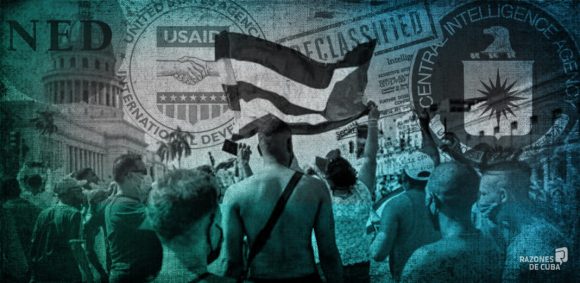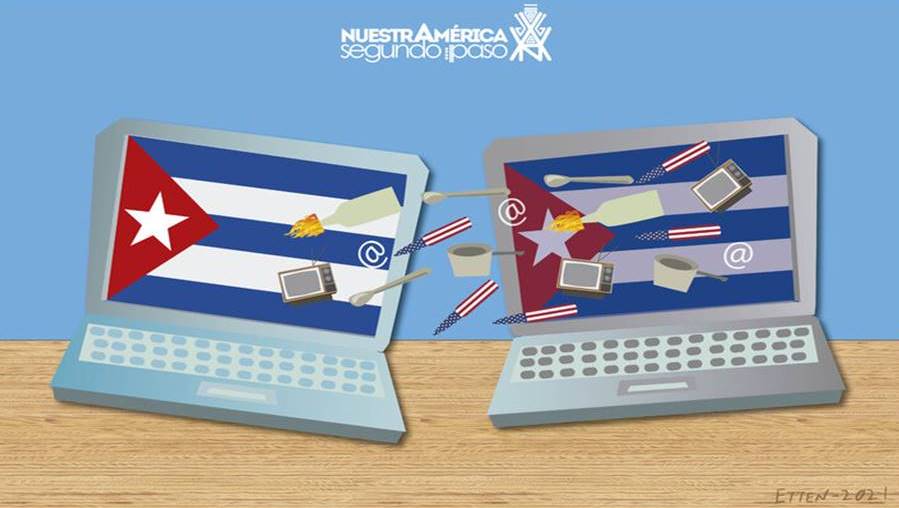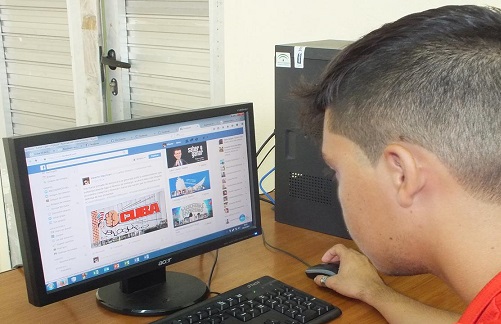

By: Santiago Romero
Cuba made the headlines, as it usually happens around this date, traditionally since 1992, but the blockade not only continues, it even becomes more aggressive through the social networks, mainly Facebook, Instagram and X.
It is not necessary to say anything, just that the url shows that you are connected from Cuba or that the mobile number shows +53, the attacks from Facebook, YouTube, Instagram, Messenger, Telegram, Twitter, LinkedIn begin. Unfortunately, I see some colleagues abandoning their identity and in a rampage to delete everything posted in defense of their country, as if google and all the army activated by the White House did not have the database of those who defend the rights of this national archipelago.
It is true that the positive and negative aspects of social networks often go hand in hand: reach, interactivity, conversation, cost, information in real time and as an instrument of the West for soft coups, fourth generation hybrid wars to overthrow governments, manipulate economies and behaviors of the public, above all, to provoke chaos and insecurity.
In the case of Cuba, the great challenges are: the need to generate our own content to defend the national image, systematic access, the assimilation of new technologies, the real, substantive participation, the presence of the business sector, the poor command of the English language, the mastery of tools from cell phones and PCs and digital security.
Social network users are growing in hundreds of millions; this is comparable to the population of any country and will soon become a floating, interactive continent in virtual reality.
As a permanent challenge is the production of content, not only in text, but in videos, photos, a meme, videoblogs, the web, infographics and podcasts.
It is very interesting how social networks articulate a topic, for example, the blockade to Cuba, a highly topical issue that leads to the knowledge and modeling of possible techniques for the positioning of the Cuban image from the resistance, however, behind it are magically designed algorithms, that set programming rules that will make a publication change by the interest of the social network itself. Naturally, for everything to run smoothly, the US gave green light to the division of cyber-attacks, the use of fake news, monitoring with stationary satellites, digital blockade and all with the Pentagon backing budget as executor, just like the USAID, the FBI and the CIA, now facing a world that is no longer unipolar.
Today, digital communication is intentionally focused on «The industry of the senses», in a changing world where the current «information or communication society» is gaining relevance, recognizing that the symbolic dimension weighs increasingly in the behavior of people and their organizational forms.
The key to today’s society, also called «digital society», lies in a fabulous accumulation of information. The «global village», as McLuhan would say, is built on these foundations. The main resource becomes the management of information – the more and the faster it is managed, the better – the trained human capital, what is known as know-how.
Simple and complex, this is the subject of social networks focused from digital marketing, its information and communication technologies that involve skills and ways of knowledge construction, say of data reception and interfaces to process them; how they are positioned by minutes and the debate does not seem to end, much less on how they impact on different audiences, commercial niches, age and community groups while the controversy increases from the educational to the communicational.
It is emphasized that digital social networks are here to stay; we are not against them, but to the macabre intentionality of those who seek disorder against peace, barbarism in the face of knowledge, hatred, anger, violence and not culture, education and identity.
Dangerous Cuba: Twitter

More than 15 cities in the United States hosted initiatives against Washington’s blockade of Cuba when there are days left for the UN to vote on a resolution against this unilateral measure
The CIA and illegal communication networks for subversion in Cuba
As of 2007, the CIA considered as a matter of first importance to guarantee Internet access in Cuba, without control of the Government or Cuban telecommunications companies.

Cuba is today more than a sovereign country, an indisputable metadata in social networks, either by the articulation of the theme or the trends that arise from it, for example, «Santiago de Cuba».























